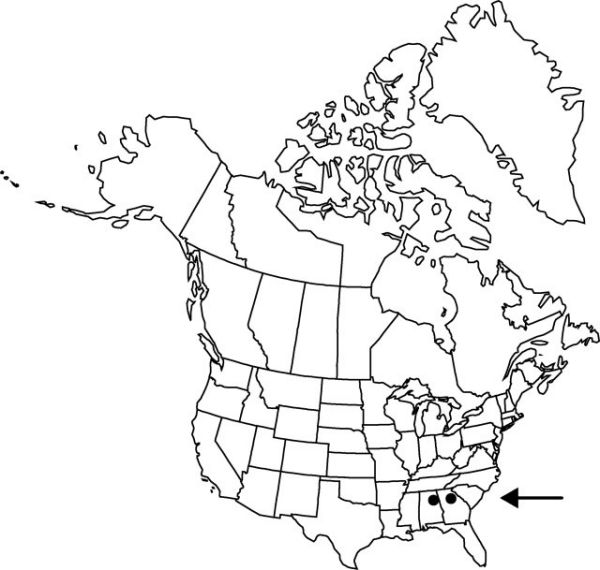Allium speculae
Rhodora 61: 70. 1959.
Bulbs 1–5+, not rhizomatous, ovoid, 1–5 × 1–2 cm; outer coats usually enclosing single bulb, grayish or brownish, reticulate, cells very fine-meshed, open; inner coats whitish, cells vertically elongate, regular. Leaves persistent, green at anthesis, 3+, sheathing; blade solid, flat, channeled, 10–30 cm × 1–2 mm, margins entire. Scape persistent, solitary (sometimes 2 in cultivated plants), erect, terete, 20–30 cm × 1–3 mm. Umbel persistent, erect, compact, 10–15-flowered, hemispheric-globose, bulbels unknown; spathe bracts persistent, 3, usually 1-veined, lanceolate, ± equal, apex long-acuminate. Flowers ± campanulate, 5–6 mm; tepals widely spreading, pinkish, elliptic, ± equal, remaining thin and withering over ovary, margins entire, apex obtuse, involute at tip; stamens included; anthers light yellow; pollen white to light yellow; ovary crested; processes 6, central, horizontally spreading, flattened, triangular, margins entire; style linear, equaling stamens; stigma capitate, obscurely 3-lobed; pedicel 9–20 mm. Seed coat shining; cells each with minute, central papilla. 2n = 14.
Phenology: Flowering Jun.
Habitat: On gneiss “flat-rocks” and sandy soil of Piedmont
Elevation: 300 m
Discussion
Of conservation concern.
Selected References
None.
